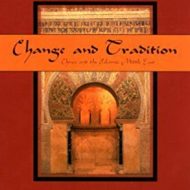While reading through a summary of 20th century Chinese history the way Professor Albert M. Craig sees it, I found a few details that struck me as peculiar, considering the absence of citation for particularly crucial details (or any at all).
Right off the bat, I find Craig’s account of Mao’s China intriguing. My personal sticking point with Crag started with his platitudinous remark when ostensibly summarizing the “Cultural Revolution” and “The Great Leap Forward” – “Mao Zedong wanted ‘revolution’ to continue, even under his own government. Millions died as a result.” (160) I found it a tad concerning how no further elaboration occurred on what those deaths were, or how we know they were even causally linked to what Mao decided was revolutionary. The importance of accurately reflecting history cannot be understated, and for us to properly grow from mistakes of the past we must know what went wrong. The unsupported tacking of millions of deaths on Mao’s apparently revolutionary movements seems to miss this goal, preventing us from using his writing to engage critically with Mao’s ideological shortcomings and rather continuing to…just kind of assume that Mao rests with the blood of millions on his hands.
In the same vein, Craig’s format of offering no formal citations or anything we can use to corroborate without seeking out sources independently additionally fails my desire for reckoning with China’s past when he speaks of Deng’s reversal of Mao’s policy – “Deng maintained the dictatorship of the Communist Party, but also introduced many features of a market economy. The result was explosive growth and an export boom, first in southeastern coastal areas, where long-suppressed entrepreneurial abilities surfaced, and then throughout the country. Standards of living rose and the society became freer[…]” (161). It would certainly be critically important for any humanitarian pursuit if this assertion that reversing Mao’s ” ‘socialist’ ” policies resulted in higher standards of living were corroborated by what sources Craig must be drawing from. I find it disappointing that I cannot simply look over his shoulder and note the information that he has aggregated.
That’s nothing to say, of course, of his assertion that Dengist China was NOT totalitarian, though Americans are all too aware of the one incident that did not happen on June 4th, 1989 in Beijing during the Democracy Movement, where there was certainly not a declaration of martial law and subsequent use of armor against the civilian population.
Another unfortunately constrictive practice of Craig’s is to employ vague sourcing for his references to popular response, e.g. “These early years [under “relatively moderate policies”] were sometimes called the era of ‘New Democracy.’ ” (161), and “During the 1950s [as part of the “Great Leap Forward”], intellectuals and universities were singled out as a target for thought reform. The Chinese slang term was “brainwashing.’ (163), and “In 1956, Mao felt that intellectuals had been adequately INDOCTRINATED, and concerned lest creativity be stifled, he said in a speech, ‘Let the hundred flowers bloom’ […] To his surprise, intellectuals responded with a torrent of criticism that did not spare the Communist Party” (164) (emphasis mine), to name the ones I saw within Craig’s summary of Maoist China. Most striking about this is that Craig employs comparatively generous reference to Deng Xiaoping’s writings and speeches (while the only quotes that appear within the section on Mao are the excerpt from “Selected Works of Deng Xiaoping,” the aforementioned note on “letting the flowers bloom,” and particular word choices of the time that Craig personally found inaccurate).
For the sake of keeping this within the length of a reasonable blog post (I think?) and not composing a detailed response to a complete list of Craig’s works, I think the above accurately notes some amount of the mental hooks I encountered when attempting to consume Craig’s works. Ultimately I found Craig to communicate Deng’s China fairly well, but Craig seems to not have found it necessary to include much of Mao or Mao’s works past the excerpt of an excerpt of Mao’s writing (“Mao’s view of China on the eve of the Great Leap Forward”) and the quip on blooming flowers. In order to present an all-encompassing view on recent Chinese history (which certainly must be fresh in Chinese culture?), I personally hold that a more comprehensive analysis of Mao’s shortcomings and the mechanics behind these would deliver a more impactful message, rather than the short notes of Mao’s actions paired with general conclusions.
